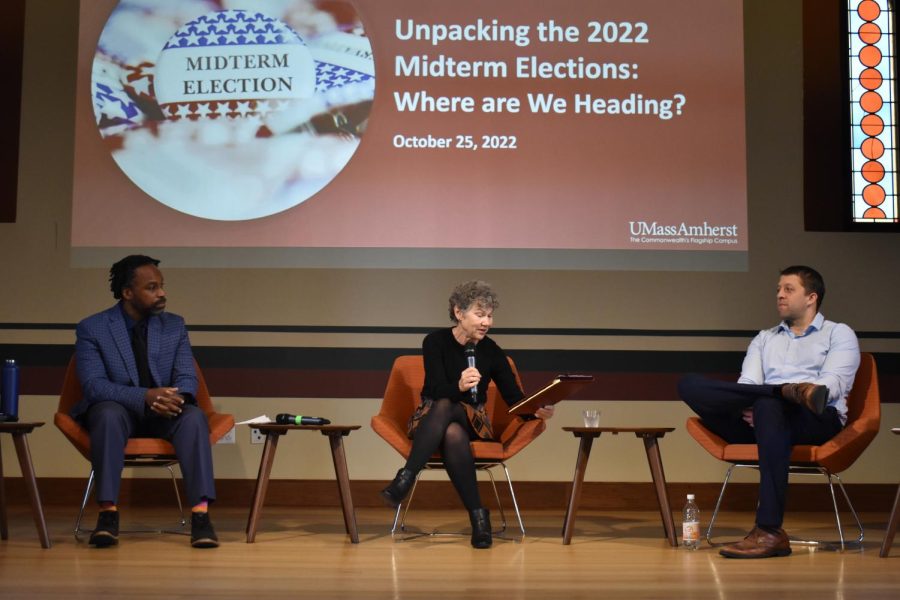With the 2022 midterm elections coming up on Tuesday, Nov. 8, the economy and healthcare are two of the driving factors affecting voters’ decisions at the polls this year. In a recent national poll conducted by the University of Massachusetts political science department, approximately 59 percent of Americans reported they are highly worried about inflation.
“The midterm elections are going to be much more affected by the fundamentals,” said Jesse Rhodes, a political science professor at UMass. Some voters are likely to make voting decisions based on the, “state of [the] economy, state of inflation … [and] really high issues like abortion and the Dobbs ruling.”
The U.S. annual inflation rate is currently eight percent. “Food prices, health care costs, those are rising at a faster rate than eight percent so that is what people look at,” said Deepankar Basu, economics professor at UMass.
With gas prices being at a higher cost compared to previous years, voters in the U.S. are starting to notice a significant problem with inflation.
“Wages are not rising as much as prices,” Basu said. “They aren’t making as much money as they [need] to pay for the essential things they need to buy.”
The low rates of unemployment in Massachusetts, currently at about 3.4 percent, have been holding steady in the past few months. There is a similar trend throughout the nation.
However, some are finding that a full-time job is no longer enough to cover the rising costs of goods and services. The poll showed that some voters feel about negatively about the economy, leading 46 percent in UMass’s poll findings to define the national economic situation as “poor.”
Many uncontrollable factors contribute to inflation rates increasing, such as the volatility of the world economy affected by the war between Ukraine and Russia. The government has prevented a significant downfall of the U.S economy by using COVID-19 stimulus packages, but new government policies might not go into effect in time for the midterm elections.
“The government is not always able to act in a way to reduce inflation immediately,” said Basu. “The current inflation is more complicated than just government policies…it started because of supply disruption during COVID-19.”
In recent years, companies have been caught off guard by the amount of demand for their products. Despite less supply stockpiles when there is low demand being more cost-effective for companies, industries are at greater risk of supply disruption.
The supply chain then became a critical issue when factories were shut down by COVID-19. Gerald Friedman, professor of economics at UMass, noted that the economy is doing better than it has in the past. Globally, industries are also actively working to fix supply chain disruptions, according to Friedman.
Current economic realities are strong influences in voter decision-making and will define the upcoming 2024 election. This is not an isolated issue, as European economics are facing similar hardships, according to Basu.
Mia Blue can be reached at [email protected].



















